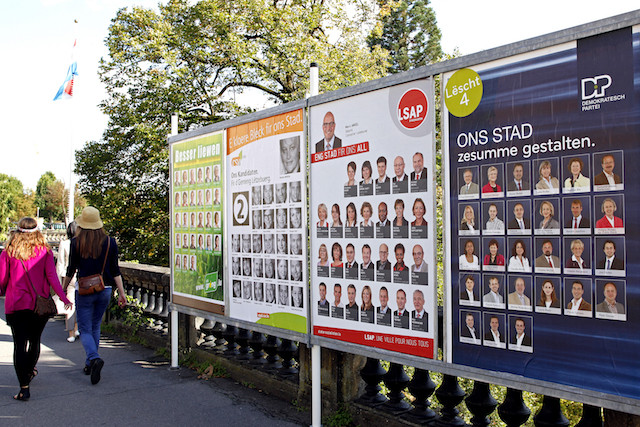Postal ballot
The report on the draft law by liberal MP Eugène Berger scraps the provision that voters have to indicate a reason (for professional reasons or holidays) to apply for the postal vote.
However, the period to submit an application for a postal vote before the vote has been increased, to give staff the possibility to deal with an increased number of registrations. A request for a postal vote must be submitted to the local governing council 12 weeks and 25 days before the elections, if the postal vote is to be sent to an address in the Grand Duchy. If the voter lives abroad, the request must be sent 12 weeks and 40 days in advance to the local governing council.
The report states that both the numbers of postal ballots and of non-voters have increased over the past elections, despite compulsory voting, and that easing access to a postal ballot is aimed at improving electoral participation.
Furthermore, the request for a postal vote can in future be made through the online portal myguichet.lu. The ballots will not be sent by registered letter anymore.
Further changes
Voters will in future only have to bring an official ID, and the voting notice sent by the local council will no longer be necessary. However, while previously one could just show the voting notice and be allowed to vote, this will not be possible anymore in future elections.
Until now, visually impaired people voted by having a person accompany them into the voting booth who could vote for them, which the report states “infringes on the rights to autonomy, the freedom to choose and to the secret vote” principles. The draft law foresees the creation of a braille voting ballot to remedy this discrimination, but visually impaired people can still decide to have a person accompany them.
The instructions to voters are also set to become easier to understand, without all the references to legal texts.
Criticisms
The Council of State has reiterated that the postal vote should be exceptional, because the “risks of abuse” are a good enough reason “not to make access too easy”. The principle of the secret vote is not as easily guaranteed.
Claude Wiseler, leader of the opposition CSV in parliament, has stated similar criticisms in an interview with public radio 100,7.
